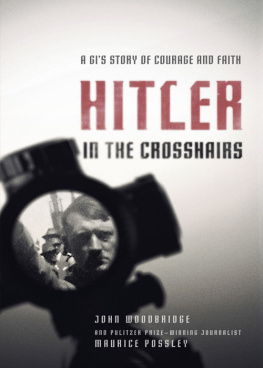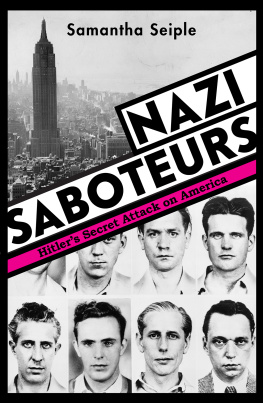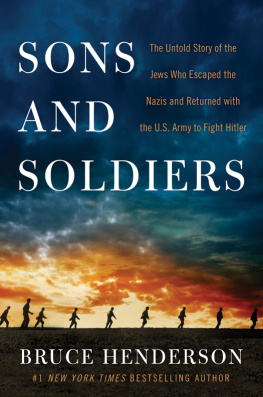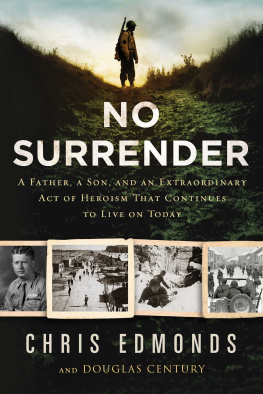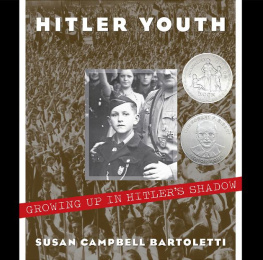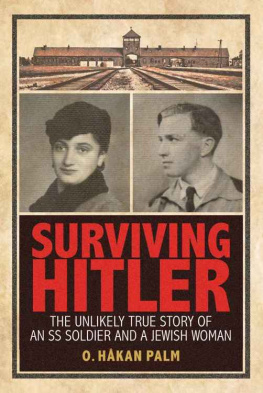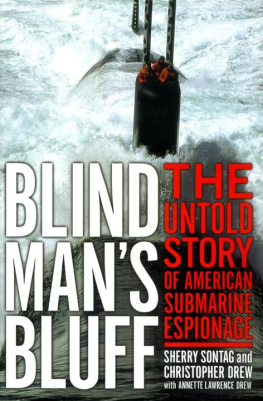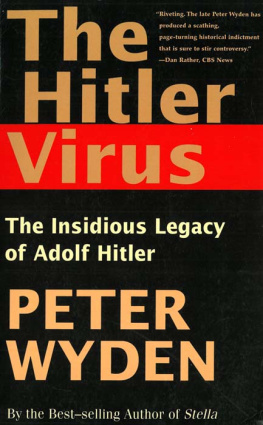The foxhole rifleman, the epitome of the fighting soldier, comprises only a few percent of the total forces. But he has endured the heat and cold, and mud and dust, and the almost intolerable fatigue and strain. His flesh, his spirit, and his nerve have had to accept and withstand hardships and dangers which literally defy description.
He bore the great burden of the casualty cost and he makes up the great part of the population of the silent cemeteries overseas. Where he was, there the battle was. He took the ground and held it. Most of the sweat and blood were his; his family shed most of the tears.
We should never forget that our finest weapons are only as good as the heart of the man that uses them.
June 26, 1954, General Charles L. Bolte,
Vice Chief of Staff, U.S. Army
T HE PAST IS ALWAYS WITH US, EVEN AS IT STEADILY SLIPS away, becoming ever more silent in the shadows of our lives. And so it was on the night of December 22, 2005, as snow drifted down gently in the darkness, softening the edges of the handsome homes and glistening the broad yards on the outskirts of Lake Forest, a suburb north of Chicago. John Woodbridge, a history professor at nearby Trinity International University, walked into the family room of his house, turned on the television set, and sat down on the couch to watch the evening news. This is what he did most nights, without consequence.
On the screen, beneath the image of a newsreader, words scrolled and Woodbridge was immediately riveted. This news ticker informed him that a gun believed to have once belonged to Adolf Hitler was being put up for auction by the owner of the Midwest Exchange pawnshop in downstate Bloomington. The gun was a model of craftsmanship, two 16-gauge shotgun barrels topped by a single 8mm rifle barrel and, most significantly, a stock that bore the initials AH. It was said to have been taken from Hitlers secluded retreat in the Bavarian Mountains, about a hundred miles southeast of Munich, when it had been overrun by U.S. Army soldiers in the final bloody and chaotic days of World War II.
As Woodbridge read the words scrolling across the screen, he was grabbed by a misty memory, and in his mind he saw himself as a six-year-old in his home in Savannah, Georgia. He could hear the voice of his father say, Come into my study, and there he watched as his father opened a drawer of his desk and withdrew from it a golden pistol.
This gun belonged to Adolf Hitler, said his father, Charles.
The voices on the television faded as he concentrated, trying to add more detail to his memories. But the veil of time was nearly sixty years thick and he could recall nothing more.
He went into the kitchen where he found his wife, Susan, and told her what he was remembering.
How in the world did my father get that pistol? he asked. How did such a thing wind up in the home of a Presbyterian minister?
Susan opened her mouth to reply
Wait, wait a second, Woodbridge said excitedly. Teen Palm! I remember a man named Teen Palm. I think he was the one who gave it to my dad. Teen was a soldier in the war. A very good friend of my fathers. Teen Palm.
Woodbridge paused and then said, I wonder what happened to him.
Susan looked at him quizzically.
We met his daughter, remember? she said. And we met Teen Palms widow.
We did? Woodbridge said. When was that?
She reminded him of a mid-1980s trip to Camp of the Woods in Speculator, New York. This was the place where John and his three sisters had pleasantly spent summer vacations as children. On a return trip many years later, John and Susan had been introduced to two other visitors, Teen Palms widow, Helen, and their daughter, Susie.
Flabbergasted, Woodbridge said, I dont recall that at all. What was Susies last name?
After searching through drawers in a kitchen cabinet, Susan triumphantly held up an old personal telephone directory. Heres her number.
He dialed. Susie picked up on the second ring and, after a bit of introductory small talk, she said, Of course I remember you. Your father was a very dear friend of my dad. Your father was the person who led my dad to faith in Christ.
Did your father ever talk about his military career? Woodbridge asked. Did he ever talk about a gun, a gun that belonged to Adolf Hitler? Could he have given that gun to my father? Why would he give that gun to my father?
It was now Susies turn to be puzzled.
No, he never mentioned it. He was in the Army but wait. I do have an old suitcase and several containers of my fathers military records, she said. And there are letters he wrote to my mother during the war, a lot of them. I have those.
She explained that her mother had become increasingly frail over the years and had ultimately come to live with Susie and her husband in New Jersey. When she arrived, she brought the suitcase and a burlap sack of memorabilia, including a German officers helmet and a large Nazi flag.
Susie told Woodbridge she would go through the letters to see if she could find any correspondence between Teen Palm and Woodbridges father, any mention of a gun.
Over the next few days, anxious for information, Woodbridge contacted his three sisters.
One by one, they answered:
They had seen the gun.
It came from a soldier named Teen Palm.
It was Adolf Hitlers pistol.
Woodbridge was energized, the historian in him hooked. The past had come roaring into his life, and he would not be satisfied until he was able to unravel the story of Teen Palm and, he thought with a shudder, Adolph Hitlers gun.
CHAPTER 1
I RA H ENRY P ALM.
The name echoed through the auditorium at Mount Vernon High School, and a young man rose from his chair in the third row and strode toward the stage wearing the wide, toothy grin that had long disarmed and charmed family and friends in this New York town less than twenty miles north of Manhattan.
Ever the athlete, he moved fluidly and confidently on this June evening in 1932. Still, he fought a ripple of unease. He knew that his academic record over the past four years was spotty at best, and he was not prepared to fully relax until Principal Hugh Stewart placed his diploma in his hand. For reasons that would ever remain a mystery, Palms diploma bore the middle name of his older brother, Clifton, and not his true middle name, Arterburn. But over the years, he had made clear that he was not all that fond of the name Arterburn in the first place.

